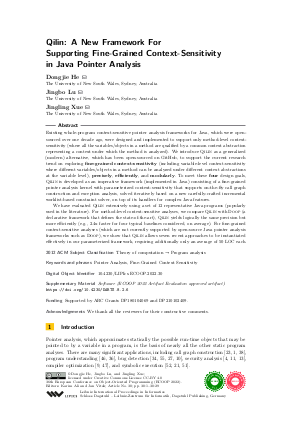LIPIcs.ECOOP.2022.30.pdf
- Filesize: 1.24 MB
- 29 pages

 Creative Commons Attribution 4.0 International license
Creative Commons Attribution 4.0 International license








































Feedback for Dagstuhl Publishing